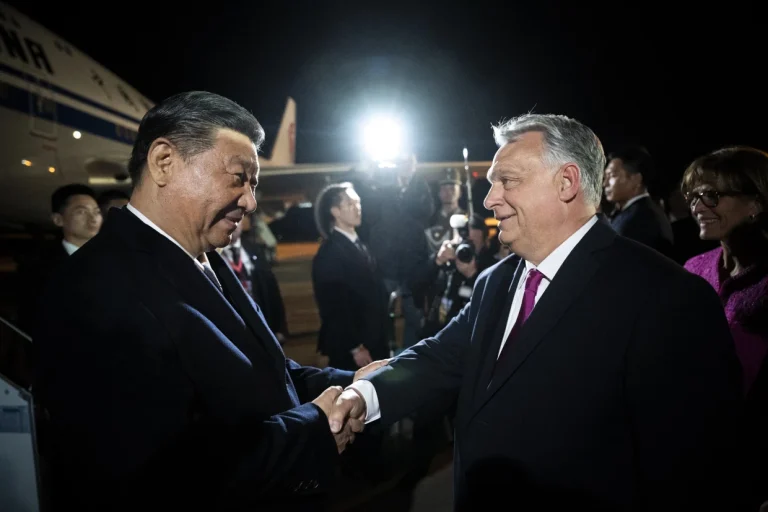During the last leg of his five-day European tour, Chinese President Xi Jinping engaged in discussions with Hungarian Prime Minister Viktor Orbán.
In Budapest, Hungary, a series of fresh agreements were inked between Hungary and China on Thursday, aimed at deepening their economic and cultural ties. This occurred during Chinese President Xi Jinping’s visit to the Central European nation, part of an effort to bolster China’s economic presence in the region.
Xi Jinping and Hungarian Prime Minister Viktor Orbán engaged in discussions in Budapest, marking the culmination of Xi’s five-day European tour, which also included stops in Serbia and France. Orbán lauded the enduring friendship between the two nations since 2010, vowing Hungary’s continued facilitation of Chinese investments.
Orbán affirmed Hungary’s commitment to providing favorable conditions for Chinese enterprises, fostering collaboration between Western and Eastern technologies within Hungary. With significant Chinese investments in Hungary, particularly in the electric vehicle sector, the country serves as a crucial point for China’s economic engagement within the European Union.
Hungary aims to become a global center for lithium-ion battery production, with Chinese EV battery plants already established. Additionally, Hungary is undertaking infrastructure projects, such as a railway link to Greece’s Piraeus port under the Belt and Road Initiative, facilitating Chinese trade into Central and Eastern Europe.
Xi Jinping emphasized the alignment of Hungary’s eastward opening strategy with the Belt and Road Initiative, pledging China’s support for Hungary’s enhanced role in EU-China relations. Strategic partnership agreements and various memoranda were signed, indicating a deepening collaboration between the two nations.
While no major investments were announced during the briefing, Hungarian Foreign Minister Péter Szijjártó hinted at discussions regarding a freight railway bypass of Budapest and a rail link to Budapest Ferihegy airport.
Orbán, known for his nationalist stance and pursuit of closer ties with Beijing, highlighted China’s increasing influence in the global power structure. He expressed Hungary’s intention to expand cooperation with China, particularly in nuclear energy, as evidenced by ongoing collaboration with Russia on the Paks nuclear facility.
The visit underscored the growing economic and strategic partnership between Hungary and China, with both nations positioning themselves for increased collaboration in various sectors, including energy and infrastructure.

